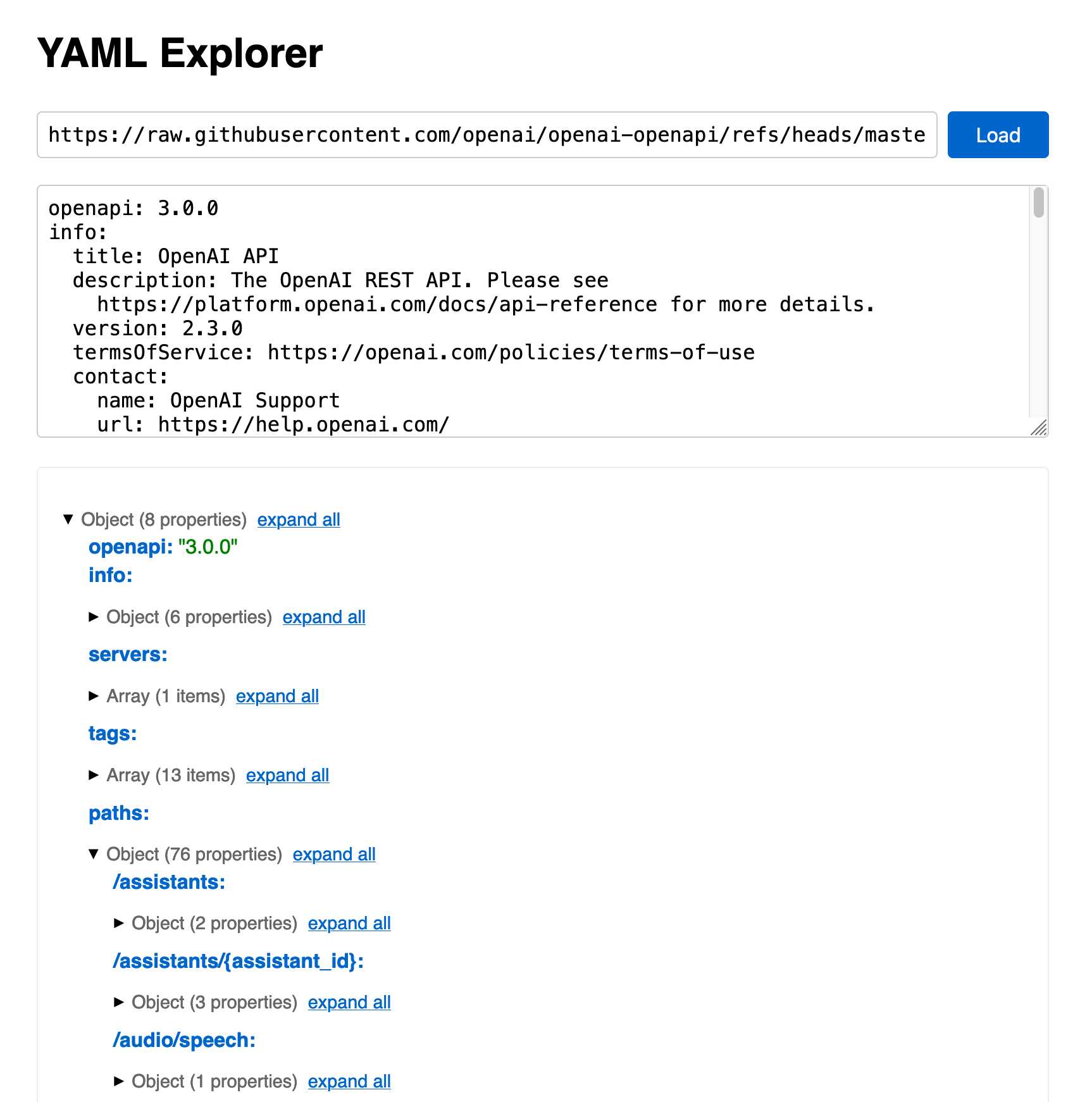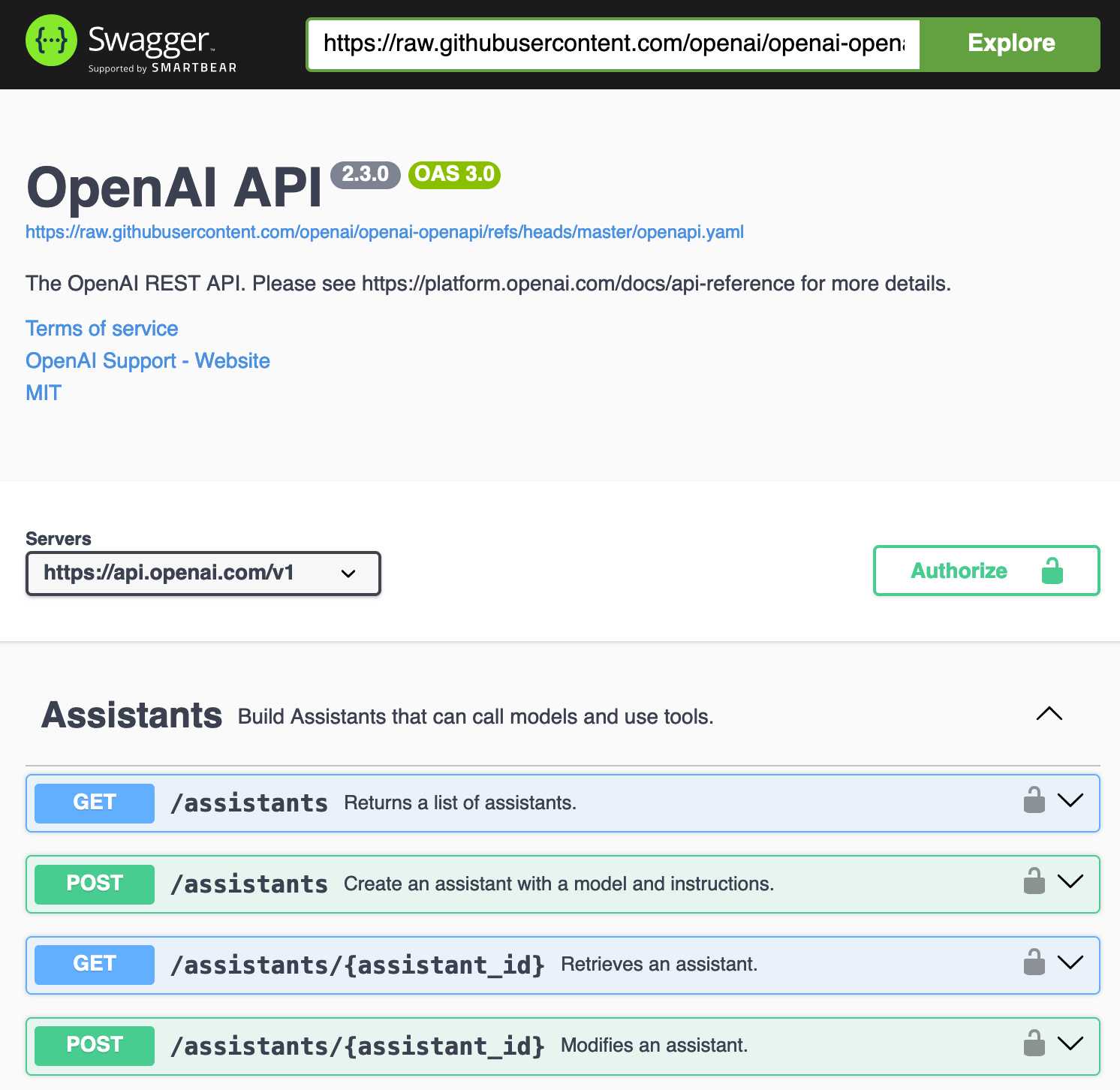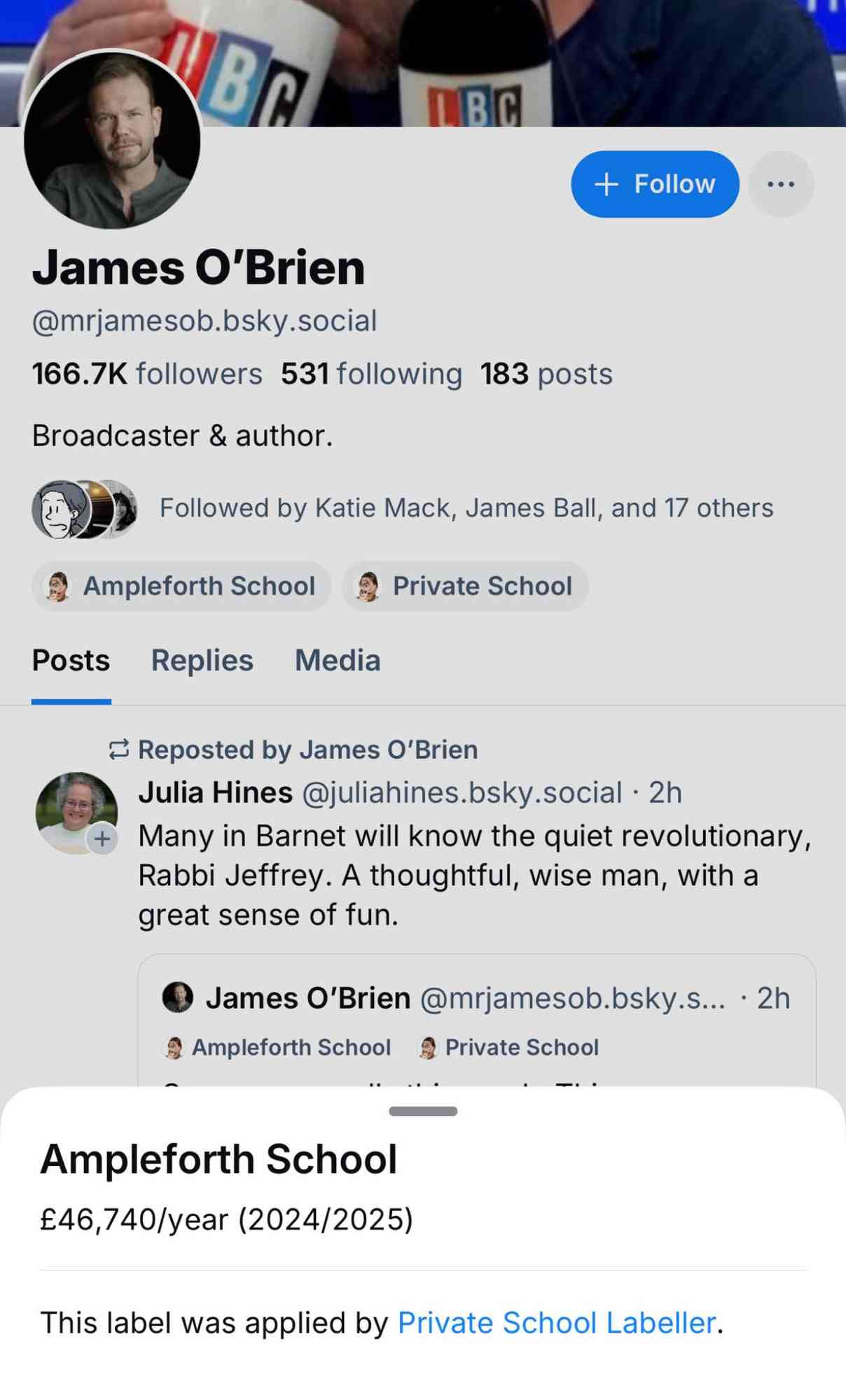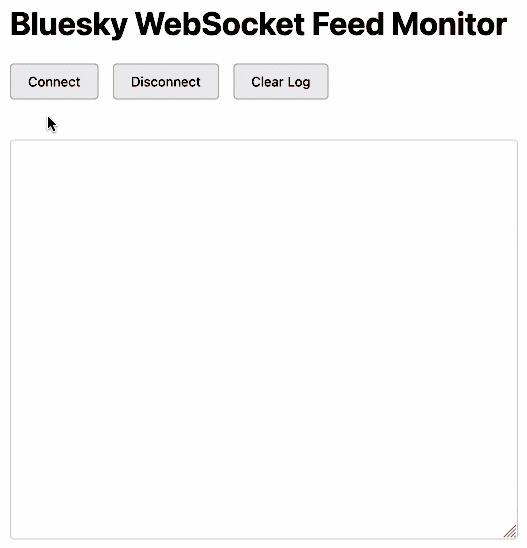Blogmarks tagged apis
Filters: Type: blogmark × apis × Sorted by date
llm-tools-exa. When I shipped LLM 0.26 yesterday one of the things I was most excited about was seeing what new tool plugins people would build for it.
Dan Turkel's llm-tools-exa is one of the first. It adds web search to LLM using Exa (previously), a relatively new search engine offering that rare thing, an API for search. They have a free preview, you can grab an API key here.
I'm getting pretty great results! I tried it out like this:
llm install llm-tools-exa
llm keys set exa
# Pasted API key here
llm -T web_search "What's in LLM 0.26?"
Here's the full answer - it started like this:
LLM 0.26 was released on May 27, 2025, and the biggest new feature in this version is official support for tools. Here's a summary of what's new and notable in LLM 0.26:
- LLM can now run tools. You can grant LLMs from OpenAI, Anthropic, Gemini, and local models access to any tool you represent as a Python function.
- Tool plugins are introduced, allowing installation of plugins that add new capabilities to any model you use.
- Tools can be installed from plugins and loaded by name with the --tool/-T option. [...]
Exa provided 21,000 tokens of search results, including what looks to be a full copy of my blog entry and the release notes for LLM.
Build AI agents with the Mistral Agents API. Big upgrade to Mistral's API this morning: they've announced a new "Agents API". Mistral have been using the term "agents" for a while now. Here's how they describe them:
AI agents are autonomous systems powered by large language models (LLMs) that, given high-level instructions, can plan, use tools, carry out steps of processing, and take actions to achieve specific goals.
What that actually means is a system prompt plus a bundle of tools running in a loop.
Their new API looks similar to OpenAI's Responses API (March 2025), in that it now manages conversation state server-side for you, allowing you to send new messages to a thread without having to maintain that local conversation history yourself and transfer it every time.
Mistral's announcement captures the essential features that all of the LLM vendors have started to converge on for these "agentic" systems:
- Code execution, using Mistral's new Code Interpreter mechanism. It's Python in a server-side sandbox - OpenAI have had this for years and Anthropic launched theirs last week.
- Image generation - Mistral are using Black Forest Lab FLUX1.1 [pro] Ultra.
- Web search - this is an interesting variant, Mistral offer two versions:
web_searchis classic search, butweb_search_premium"enables access to both a search engine and two news agencies: AFP and AP". Mistral don't mention which underlying search engine they use but Brave is the only search vendor listed in the subprocessors on their Trust Center so I'm assuming it's Brave Search. I wonder if that news agency integration is handled by Brave or Mistral themselves? - Document library is Mistral's version of hosted RAG over "user-uploaded documents". Their documentation doesn't mention if it's vector-based or FTS or which embedding model it uses, which is a disappointing omission.
- Model Context Protocol support: you can now include details of MCP servers in your API calls and Mistral will call them when it needs to. It's pretty amazing to see the same new feature roll out across OpenAI (May 21st), Anthropic (May 22nd) and now Mistral (May 27th) within eight days of each other!
They also implement "agent handoffs":
Once agents are created, define which agents can hand off tasks to others. For example, a finance agent might delegate tasks to a web search agent or a calculator agent based on the conversation's needs.
Handoffs enable a seamless chain of actions. A single request can trigger tasks across multiple agents, each handling specific parts of the request.
This pattern always sounds impressive on paper but I'm yet to be convinced that it's worth using frequently. OpenAI have a similar mechanism in their OpenAI Agents SDK.
OpenAI: Introducing our latest image generation model in the API. The astonishing native image generation capability of GPT-4o - a feature which continues to not have an obvious name - is now available via OpenAI's API.
It's quite expensive. OpenAI's estimates are:
Image outputs cost approximately $0.01 (low), $0.04 (medium), and $0.17 (high) for square images
Since this is a true multi-modal model capability - the images are created using a GPT-4o variant, which can now output text, audio and images - I had expected this to come as part of their chat completions or responses API. Instead, they've chosen to add it to the existing /v1/images/generations API, previously used for DALL-E.
They gave it the terrible name gpt-image-1 - no hint of the underlying GPT-4o in that name at all.
I'm contemplating adding support for it as a custom LLM subcommand via my llm-openai plugin, see issue #18 in that repo.
OpenAI API: Responses vs. Chat Completions. OpenAI released a bunch of new API platform features this morning under the headline "New tools for building agents" (their somewhat mushy interpretation of "agents" here is "systems that independently accomplish tasks on behalf of users").
A particularly significant change is the introduction of a new Responses API, which is a slightly different shape from the Chat Completions API that they've offered for the past couple of years and which others in the industry have widely cloned as an ad-hoc standard.
In this guide they illustrate the differences, with a reassuring note that:
The Chat Completions API is an industry standard for building AI applications, and we intend to continue supporting this API indefinitely. We're introducing the Responses API to simplify workflows involving tool use, code execution, and state management. We believe this new API primitive will allow us to more effectively enhance the OpenAI platform into the future.
An API that is going away is the Assistants API, a perpetual beta first launched at OpenAI DevDay in 2023. The new responses API solves effectively the same problems but better, and assistants will be sunset "in the first half of 2026".
The best illustration I've seen of the differences between the two is this giant commit to the openai-python GitHub repository updating ALL of the example code in one go.
The most important feature of the Responses API (a feature it shares with the old Assistants API) is that it can manage conversation state on the server for you. An oddity of the Chat Completions API is that you need to maintain your own records of the current conversation, sending back full copies of it with each new prompt. You end up making API calls that look like this (from their examples):
{
"model": "gpt-4o-mini",
"messages": [
{
"role": "user",
"content": "knock knock.",
},
{
"role": "assistant",
"content": "Who's there?",
},
{
"role": "user",
"content": "Orange."
}
]
}These can get long and unwieldy - especially when attachments such as images are involved - but the real challenge is when you start integrating tools: in a conversation with tool use you'll need to maintain that full state and drop messages in that show the output of the tools the model requested. It's not a trivial thing to work with.
The new Responses API continues to support this list of messages format, but you also get the option to outsource that to OpenAI entirely: you can add a new "store": true property and then in subsequent messages include a "previous_response_id: response_id key to continue that conversation.
This feels a whole lot more natural than the Assistants API, which required you to think in terms of threads, messages and runs to achieve the same effect.
Also fun: the Response API supports HTML form encoding now in addition to JSON:
curl https://api.openai.com/v1/responses \
-u :$OPENAI_API_KEY \
-d model="gpt-4o" \
-d input="What is the capital of France?"
I found that in an excellent Twitter thread providing background on the design decisions in the new API from OpenAI's Atty Eleti. Here's a nitter link for people who don't have a Twitter account.
New built-in tools
A potentially more exciting change today is the introduction of default tools that you can request while using the new Responses API. There are three of these, all of which can be specified in the "tools": [...] array.
{"type": "web_search_preview"}- the same search feature available through ChatGPT. The documentation doesn't clarify which underlying search engine is used - I initially assumed Bing, but the tool documentation links to this Overview of OpenAI Crawlers page so maybe it's entirely in-house now? Web search is priced at between $25 and $50 per thousand queries depending on if you're using GPT-4o or GPT-4o mini and the configurable size of your "search context".{"type": "file_search", "vector_store_ids": [...]}provides integration with the latest version of their file search vector store, mainly used for RAG. "Usage is priced at $2.50 per thousand queries and file storage at $0.10/GB/day, with the first GB free".{"type": "computer_use_preview", "display_width": 1024, "display_height": 768, "environment": "browser"}is the most surprising to me: it's tool access to the Computer-Using Agent system they built for their Operator product. This one is going to be a lot of fun to explore. The tool's documentation includes a warning about prompt injection risks. Though on closer inspection I think this may work more like Claude Computer Use, where you have to run the sandboxed environment yourself rather than outsource that difficult part to them.
I'm still thinking through how to expose these new features in my LLM tool, which is made harder by the fact that a number of plugins now rely on the default OpenAI implementation from core, which is currently built on top of Chat Completions. I've been worrying for a while about the impact of our entire industry building clones of one proprietary API that might change in the future, I guess now we get to see how that shakes out!
openai/openai-openapi. Seeing as the LLM world has semi-standardized on imitating OpenAI's API format for a whole host of different tools, it's useful to note that OpenAI themselves maintain a dedicated repository for a OpenAPI YAML representation of their current API.
(I get OpenAI and OpenAPI typo-confused all the time, so openai-openapi is a delightfully fiddly repository name.)
The openapi.yaml file itself is over 26,000 lines long, defining 76 API endpoints ("paths" in OpenAPI terminology) and 284 "schemas" for JSON that can be sent to and from those endpoints. A much more interesting view onto it is the commit history for that file, showing details of when each different API feature was released.
Browsing 26,000 lines of YAML isn't pleasant, so I got Claude to build me a rudimentary YAML expand/hide exploration tool. Here's that tool running against the OpenAI schema, loaded directly from GitHub via a CORS-enabled fetch() call: https://tools.simonwillison.net/yaml-explorer#.eyJ1c... - the code after that fragment is a base64-encoded JSON for the current state of the tool (mostly Claude's idea).

The tool is a little buggy - the expand-all option doesn't work quite how I want - but it's useful enough for the moment.
Update: It turns out the petstore.swagger.io demo has an (as far as I can tell) undocumented ?url= parameter which can load external YAML files, so here's openai-openapi/openapi.yaml in an OpenAPI explorer interface.

Private School Labeler on Bluesky. I am utterly delighted by this subversive use of Bluesky's labels feature, which allows you to subscribe to a custom application that then adds visible labels to profiles.
The feature was designed for moderation, but this labeler subverts it by displaying labels on accounts belonging to British public figures showing which expensive private school they went to and what the current fees are for that school.
Here's what it looks like on an account - tapping the label brings up the information about the fees:

These labels are only visible to users who have deliberately subscribed to the labeler. Unsurprisingly, some of those labeled aren't too happy about it!
In response to a comment about attending on a scholarship, the label creator said:
I'm explicit with the labeller that scholarship pupils, grant pupils, etc, are still included - because it's the later effects that are useful context - students from these schools get a leg up and a degree of privilege, which contributes eg to the overrepresentation in British media/politics
On the one hand, there are clearly opportunities for abuse here. But given the opt-in nature of the labelers, this doesn't feel hugely different to someone creating a separate webpage full of information about Bluesky profiles.
I'm intrigued by the possibilities of labelers. There's a list of others on bluesky-labelers.io, including another brilliant hack: Bookmarks, which lets you "report" a post to the labeler and then displays those reported posts in a custom feed - providing a private bookmarks feature that Bluesky itself currently lacks.
Update: @us-gov-funding.bsky.social is the inevitable labeler for US politicians showing which companies and industries are their top donors, built by Andrew Lisowski (source code here) using data sourced from OpenScrets. Here's what it looks like on this post:

Bluesky WebSocket Firehose. Very quick (10 seconds of Claude hacking) prototype of a web page that attaches to the public Bluesky WebSocket firehose and displays the results directly in your browser.
Here's the code - there's very little to it, it's basically opening a connection to wss://jetstream2.us-east.bsky.network/subscribe?wantedCollections=app.bsky.feed.post and logging out the results to a <textarea readonly> element.

Bluesky's Jetstream isn't their main atproto firehose - that's a more complicated protocol involving CBOR data and CAR files. Jetstream is a new Go proxy (source code here) that provides a subset of that firehose over WebSocket.
Jetstream was built by Bluesky developer Jaz, initially as a side-project, in response to the surge of traffic they received back in September when Brazil banned Twitter. See Jetstream: Shrinking the AT Proto Firehose by >99% for their description of the project when it first launched.
The API scene growing around Bluesky is really exciting right now. Twitter's API is so expensive it may as well not exist, and Mastodon's community have pushed back against many potential uses of the Mastodon API as incompatible with that community's value system.
Hacking on Bluesky feels reminiscent of the massive diversity of innovation we saw around Twitter back in the late 2000s and early 2010s.
Here's a much more fun Bluesky demo by Theo Sanderson: firehose3d.theo.io (source code here) which displays the firehose from that same WebSocket endpoint in the style of a Windows XP screensaver.
How streaming LLM APIs work.
New TIL. I used curl to explore the streaming APIs provided by OpenAI, Anthropic and Google Gemini and wrote up detailed notes on what I learned.
Also includes example code for receiving streaming events in Python with HTTPX and receiving streaming events in client-side JavaScript using fetch().
Deactivating an API, one step at a time (via) Bruno Pedro describes a sensible approach for web API deprecation, using API keys to first block new users from using the old API, then track which existing users are depending on the old version and reaching out to them with a sunset period.
The only suggestion I'd add is to implement API brownouts - short periods of time where the deprecated API returns errors, several months before the final deprecation. This can help give users who don't read emails from you notice that they need to pay attention before their integration breaks entirely.
I've seen GitHub use this brownout technique successfully several times over the last few years - here's one example.
Jina AI Reader. Jina AI provide a number of different AI-related platform products, including an excellent family of embedding models, but one of their most instantly useful is Jina Reader, an API for turning any URL into Markdown content suitable for piping into an LLM.
Add r.jina.ai to the front of a URL to get back Markdown of that page, for example https://r.jina.ai/https://simonwillison.net/2024/Jun/16/jina-ai-reader/ - in addition to converting the content to Markdown it also does a decent job of extracting just the content and ignoring the surrounding navigation.
The API is free but rate-limited (presumably by IP) to 20 requests per minute without an API key or 200 request per minute with a free API key, and you can pay to increase your allowance beyond that.
The Apache 2 licensed source code for the hosted service is on GitHub - it's written in TypeScript and uses Puppeteer to run Readabiliy.js and Turndown against the scraped page.
It can also handle PDFs, which have their contents extracted using PDF.js.
There's also a search feature, s.jina.ai/search+term+goes+here, which uses the Brave Search API.
Macaroons Escalated Quickly (via) Thomas Ptacek’s follow-up on Macaroon tokens, based on a two year project to implement them at Fly.io. The way they let end users calculate new signed tokens with additional limitations applied to them (“caveats” in Macaroon terminology) is fascinating, and allows for some very creative solutions.
Getting started with the Datasette Cloud API. I wrote an introduction to the Datasette Cloud API for the company blog, with a tutorial showing how to use Python and GitHub Actions to import data from the Federal Register into a table in Datasette Cloud, then configure full-text search against it.
babelmark3 (via) I found this tool today while investigating an bug in Datasette’s datasette-render-markdown plugin: it lets you run a fragment of Markdown through dozens of different Markdown libraries across multiple different languages and compare the results. Under the hood it works with a registry of API URL endpoints for different implementations, most of which are encrypted in the configuration file on GitHub because they are only intended to be used by this comparison tool.
API Tokens: A Tedious Survey. Thomas Ptacek reviews different approaches to implementing secure API tokens, from simple random strings stored in a database through various categories of signed token to exotic formats like Macaroons and Biscuits, both new to me.
Macaroons carry a signed list of restrictions with them, but combine it with a mechanism where a client can add their own additional restrictions, sign the combination and pass the token on to someone else.
Biscuits are similar, but “embed Datalog programs to evaluate whether a token allows an operation”.
Custom Properties as State.
Fascinating thought experiment by Chris Coyier: since CSS custom properties can be defined in an external stylesheet, we can APIs that return stylesheets defining dynamically server-side generated CSS values for things like time-of-day colour schemes or even strings that can be inserted using ::after { content: var(--my-property).
This gave me a very eccentric idea for a Datasette plugin...
PostGraphile: Production Considerations. PostGraphile is a tool for building a GraphQL API on top of an existing PostgreSQL schema. Their “production considerations” documentation is particularly interesting because it directly addresses some of my biggest worries about GraphQL: the potential for someone to craft an expensive query that ties up server resources. PostGraphile suggests a number of techniques for avoiding this, including a statement timeout, a query allowlist, pagination caps and (in their “pro” version) a cost limit that uses a calculated cost score for the query.
Building a stateless API proxy (via) This is a really clever idea. The GitHub API is infuriatingly coarsely grained with its permissions: you often end up having to create a token with way more permissions than you actually need for your project. Thea Flowers proposes running your own proxy in front of their API that adds more finely grained permissions, based on custom encrypted proxy API tokens that use JWT to encode the original API key along with the permissions you want to grant to that particular token (as a list of regular expressions matching paths on the underlying API).
How we made an API for BoingBoing in an evening. Fluidinfo really is a fascinating piece of software. The team loaded in 11 years of BoingBoing content, allowing you to run structured queries against the data using their standard API, but also allowing users to attach their own information to the same corpus using Fluidinfo tags. Writable APIs are much less common than read-only APIs—Fluidinfo instantly provides both.
Google APIs & Developer Products. Presented as a sort-of-periodic table. There’s quite a bit of stuff on here I didn’t know about.
Tip: Flickr standard photo response as slideshow. Neat trick—you can construct a URL to Flickr’s slideshow widget that includes the results of any API method, including the all-powerful flickr.photos.search. It’s a shame you can’t embed the resulting slideshow in an iframe.
Introducing the FluidDB Explorer. Every good API deserves a dedicated API browser.
Yahoo! Developer Network: Important API Updates and Changes. Some important (and potentially worrying) news about Yahoo! APIs. The BOSS (Build your Own Search Service) API will no longer be free—not an enormous surprise, and hopefully the pricing will be sensible. Most of the other search APIs (including web, news and image search) are being turned off with no replacement, while term extraction and spelling suggestions will be YQL-only. Most worrying, changes to Geo, Maps and Local APIs will be announced in September, with some set to close. I really hope this doesn’t affect the GeoPlanet APIs.
Writing Bulletproof Apps with API Errorpoints. This is a very good idea: Web APIs should offer special API endpoints for simulating each of the possible errors that might be returned by the production API.
Closure Compiler Service (via) A hosted version of the Google Closure Compiler (JavaScript minifier) running on App Engine. It has both a user interface and a REST API, which means you can use it as part of an automated build process without needing to set up a local copy of the software.
TfL Live Traffic Cameras. Part of the new set of APIs released by the Greater London Authority—a list of 177 live traffic camera feeds from around London, all geocoded.
What’s powering the Content API? The new Guardian Content API runs on Solr, scaled using EC2 and Solr replication and with a Scala web service layer sitting between Solr and the API’s end users.
GeoPlanet Explorer. Chris Heilmann’s YQL powered explorer for the invaluable Yahoo! GeoPlanet / WhereOnEarth dataset. Every API deserves an explorer of some sort.
OSM static map api. A very welcome addition to the OpenStreetMap world (with plenty of options for overlaying points, polygons etc) slightly marred by the size and relative ugliness of the OpenStreetMap watermark.
Cloudvox. A brand new startup offering “API-driven phone calls” with a beautifully simple webhooks based API.
Google Docs OCR. Whoa, the Google Docs API just got really interesting—you can upload an image to it (POST /feeds/default/private/full?ocr=true) and it will OCR the text and turn it in to a document. Since this is Google, I imagine they’ll also be using the processed documents to further improve their OCR technology.